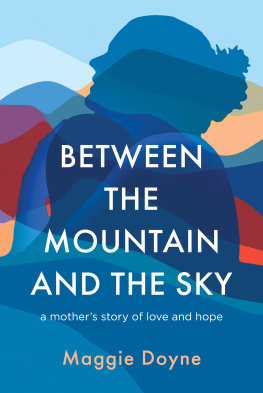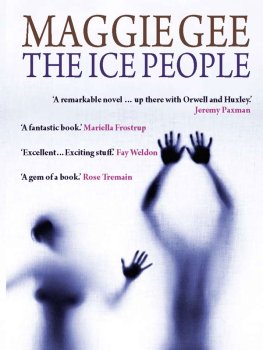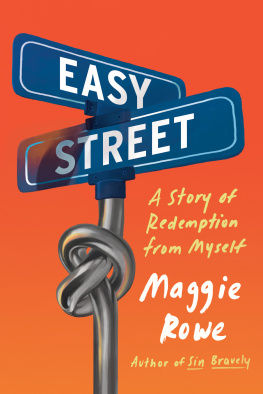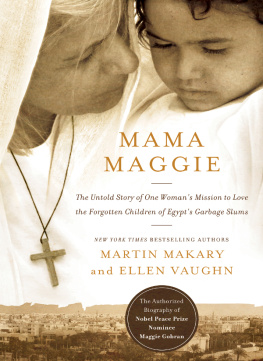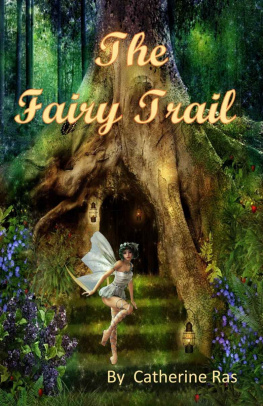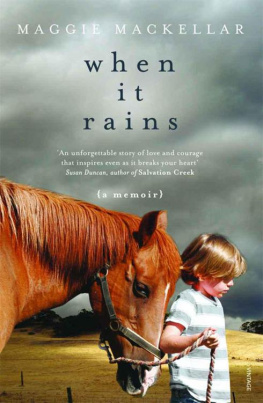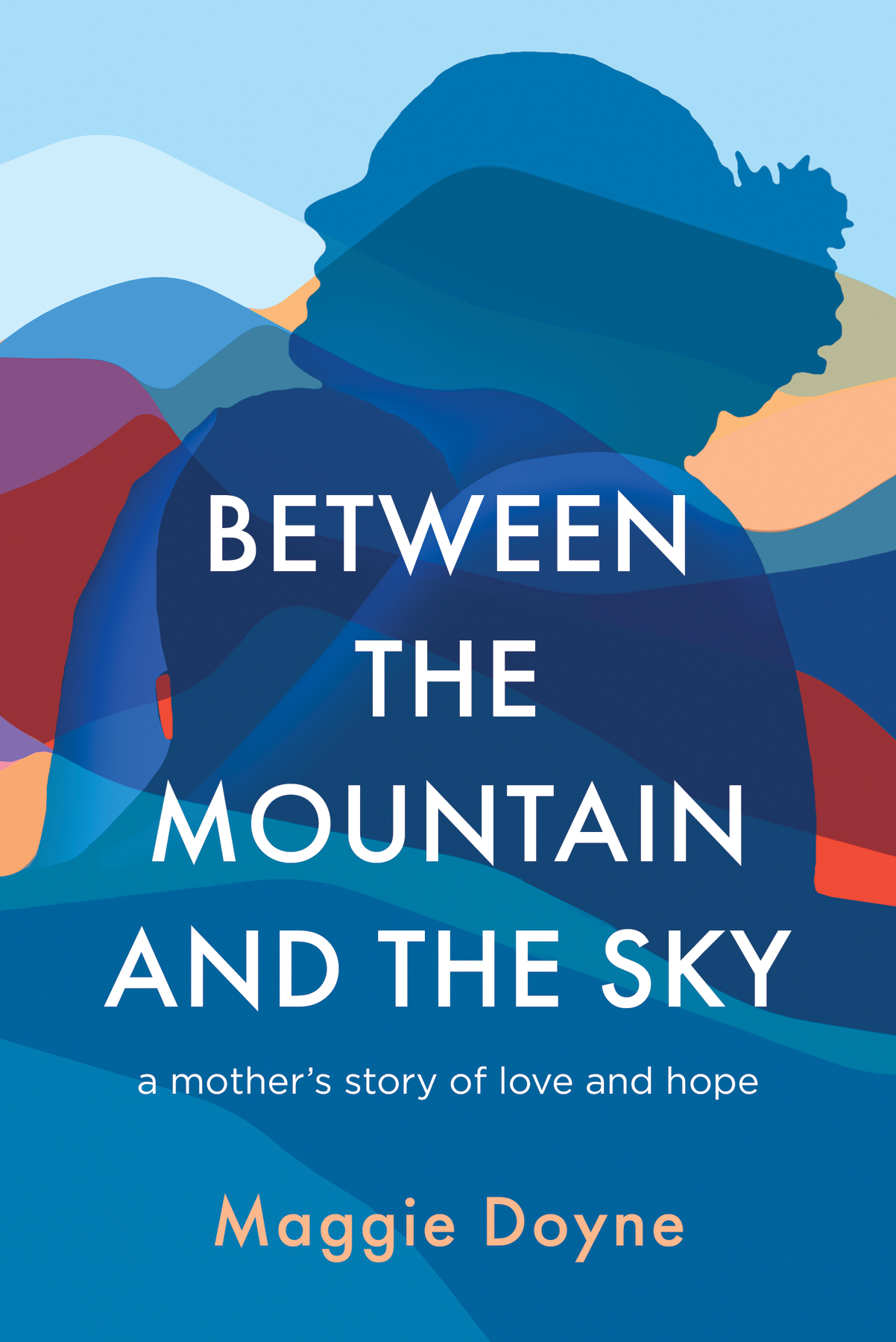Copyright 2022 Maggie Doyne
All rights reserved. No portion of this book may be reproduced, stored in a retrieval system, or transmitted in any form or by any meanselectronic, mechanical, photocopy, recording, scanning, or otherexcept for brief quotations in critical reviews or articles, without the prior written permission of the publisher.
Published by Harper Horizon, an imprint of HarperCollins Focus LLC.
Any internet addresses, phone numbers, or company or product information printed in this book are offered as a resource and are not intended in any way to be or to imply an endorsement by Harper Horizon, nor does Harper Horizon vouch for the existence, content, or services of these sites, phone numbers, companies, or products beyond the life of this book.
ISBN 978-0-7852-4029-7 (eBook)
ISBN 978-0-7852-4028-0 (HC)
Epub Edition January 2022 9780785240297
Library of Congress Control Number: 2021941639
Printed in the United States of America
22 23 24 25 26 LSC 10 9 8 7 6 5 4 3 2 1
Contents
Guide
Dear Reader,
Thank you for taking time out of your story to live in mine. It might seem like a small act, but your support, curiosity, and love mean more than you know.
In the beginning at Kopila Valley, before reliable Wi-Fi and even electricity, books were my greatest comfort, my best friends, and my deepest connections to the rest of the world. If you find solace or hope in these pages, if you see even a glimpse of yourself or your family, Ill consider this first book of mine a roaring success.
For the past twelve years, Ive been part of a team raising a group of amazing children at Kopila Valley Childrens Home in Surkhet, Nepal. There are so many stories to tell about this beautiful place and its even more beautiful people, but my story is the only one that belongs to me, and the only one Im qualified to tell. It is my biggest, brightest hope that, one day, our children and the rest of our team will choose to share their lives with you, but when they do, it will be on their own terms. Youll still get to know them enough through these pages to fall madly in love.
Another story I feel unqualified to tell is that of international development, a complex, ethically challenging, rapidly changing field of work Im honored to have stumbled into. I am passionate about making this world better, and Im happy to be able to share my experience, but it is merely one experience. This is not a how-to guide. Ive made many mistakes, and I still have a lot to learn.
Between the Mountain and the Sky spans more than a decade, during which I moved to Nepal, built a house, raised fifty-four children, endured trauma, and experienced the wildest love imaginable. Mom brain is real, and my memory is imperfect. I relied heavily on blog entries, journals, and the (much more reliable) minds of those who have been at my side. Conversations have been reconstructed as best as I could remember them, with plenty of care taken to preserve veracity and meaning. Also, some names and identifying details have been changed to protect anyone who I thought may not want to make a cameo in a memoir.
Thank you, thank you, thank you for being here.
Big Love,
Maggie
E ARLY IN THE day, when the sun is still shy behind the mountains, the children and I cross the street in front of our house and walk down the dirt path to our small bamboo school. We pass yellow mustard fields and tin-roofed houses dressed up with coral paint. Street dogs come to sniff our ankles, chickens squawk, and the neighbors wave at us. Were quite the group, a family of more than fifty all together, and on any given day, half of us are skipping, shuffling, or marching up the road through the morning mist. Im the mother figure to fifty-four children, sister to half a dozen aunties and uncles who live and work and parent alongside me, wife to Jeremy, and mama to our biological daughter, Ruby. Surkhet, a foothill town in midwestern Nepal, is our home.
Our mornings are a precious frenzy, as they are for parents and caregivers all over the world. There are just more of us here. Shangkar Uncle and Basanti Auntie wake early and make a big, steaming pot of chai before starting on breakfast. The crushing of ginger and grinding of fresh black pepper and cardamom are the first sounds I hear, and the smell, milky and sweet and comforting, draws all the adults from our beds to the kitchen. Tope, my cofounder, and his wife, Kusum, will soon head off on their morning walk with our dogs, Nova and Nacho. Tope has his headphones in and the news from BBC radio on. He takes them off and gives us a play-by-play of anything and everything thats happened in Nepal and the rest of the world overnight. Aakriti and Sachyam, our head caregivers, ring the breakfast bell.
Through the kitchen window, I watch Namraj skateboard by and Sukma Auntie comb Pabitras hair into pigtails on the porch. Santosh joins her, complaining that hes lost his belt. Sundar has two right shoes, and Asmitas uniform is still wet from being left out in the rain overnight. A game of walnut marbles begins in the side yard, and kids swing on the swing set in the garden. The bell rings again, and they all come running, walnuts in hand, bickering about who won the game. Basanti appears carrying a big pot of sujji (sweet cream of wheat) and a basket of bananas.
Counting! Sachyam shouts.
The children arrive, falling in line and calling out their numbers, one to fifty-four. First there are the littlest ones, Khushbu, Himal, and Jamuna. Then the six-to-eight-year-olds, Jhagat, Pabitra, Asmita, and Manisha, a flash of green in their uniforms. The middle kids follow: Kalpana, Ganga, Hari, Khajuri, Man Kumari, Shanti, Yagay, Maya, Bindu, and Santosh. The teenagers come last: Krishna Bogati, Naveen, Padam, Hansaraj, Anjali, Sagar, Alina, Sanju, Bhakta, Rupa, and little Nisha. The teens refer to themselves as the originals and have been at Kopila Valley Childrens Home since the beginning. They remember carrying the bricks upstairs to build the third story, bathing and washing our clothes in the spring at Bulebule. They remember when we got our first TV, dug the first well, and when Sudip and Nirmal got arrested for shoplifting.
The young adults are grown up now and scattered all over the world. Shova is at Lafayette College in Pennsylvania, and Janak is at Drew University in New Jersey, where Im from. Theres Nisha in Senegal, Goma at Kings College, Keshav at Midwestern University, and Karma at nursing school. I miss them most in the mornings, but as they move on, their numbers are passed to new children, most recently Kiran and Sunita, who sit next to each other and eat three bananas each. When the meal is over, ready or not, we set off through the front gates.
Our elementary school across the street is nothing impressive, but its the heartbeat of the community. We built it when I was twenty-two. Its just some bamboo, tin, and plyboard laid on slabs of stone and cement. Games of Ping-Pong and freeze tag begin at sunrise and also a Nepali game called Fire in the Mountain that kind of reminds me of Duck, Duck, Goose. Theres a small entryway and a large blue sign that reads kopila valley school. Grandmothers, big sisters, aunties, uncles, and neighbors gather to drop off their little ones and say, Namaste. The kids freshly dressed from our home run past me toward their friends and teachers, and only a few of them bother to stop for a kiss goodbye. The big yellow Kopila bus rolls by, and dew begins to lift from the playground. The school bell rings. Everything falls quiet. I take a long walk through town.

